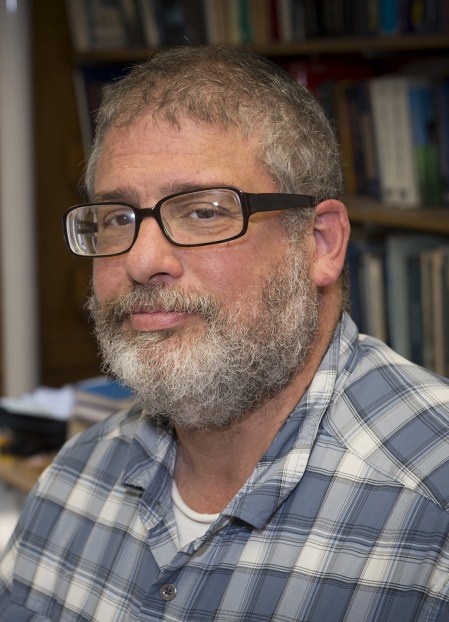Article by ASCE-PGH Awards Committee and ASCE-PGH Blog Editor

Dr. Mitchell J. Small is the recipient of the 2014 ASCE-Pittsburgh Professor of the Year Award. Dr. Small is jointly appointed in the Departments of Civil and Environmental Engineering (CMU-CEE), and Engineering and Public Policy (CMU-EPP) at Carnegie Mellon University.
Dr. Small was born and raised in Pittsburgh, where he earned a BS in Civil Engineering at Carnegie Mellon in 1975. After graduation, he worked at the New Jersey consulting firm, Hydroscience, Inc., and later went on to earn an MS (1979) and a Ph. D. (1982) in Environmental and Water Resources Engineering at the University of Michigan.
In 1982, Dr. Small returned to Pittsburgh, where he has been teaching at Carnegie Mellon University ever since.
Dr. Small’s success in research may be attributed to his ability to turn chaos into insight. “Working with Mitch is never a dull moment!” says CMU-CEE professor, Dr. Jeanne VanBriesen. “The very first time I met with Mitch to ask for his help with a problem, he listened intently, suggested a new direction, and casually mentioned he thought there was a journal article from several decades ago that would help on this. Then he spun in his chair, rummaged in a pile of what looked like totally disorganized paper, and produced a copy of that article. I thought I’d just seen a conjuring trick.”
Dr. Small has made numerous contributions to advancing knowledge in civil and environmental engineering, and related areas of public health and public policy. He is widely recognized as a national leader in integrated assessment for civil engineering decision-making. His path-breaking research has focused on building and applying models that link contaminant fate and transport, human behavior, exposure, and risk to inform engineering decisions.
“Mitch is a unique, dynamic thinker. His perspective is often unusual, always on point, and insightful in ways that change the structure of the problem, creating new solution approaches,” says Dr. VanBriesen.
Dr. Small is also recognized for his unique teaching style, for which he consistently receives high marks from his students. “Mitch Small is an outstanding educator who has influenced and inspired generations of civil and environmental engineering students at Carnegie Mellon,” says CMU-CEE professor and department head, Dr. Dave Dzombak. “He combines his powerful intellect, knowledge of engineering and statistics, creativity, and comedic skills to be a very engaging lecturer.” A hallmark of Dr. Small’s teaching is his ability keep his students engaged while learning about complex quantitative analysis in engineering, design, and policy.
“One thing most people know about Mitch is that he is witty and very good at telling jokes, which creates good atmosphere,” says former Ph. D. student, Dr. Ya-Mei Yang. “His clever and hilarious teaching style melt downs the gap between him and the students.”
Through Dr. Small’s teaching, students are equipped with quantitative tools in statistical and process modeling that enables them to excel in practice, academia, and government. Dr. Small advises an average of 10 undergraduates and 10 graduate students each year. He has been a highly successful advisor of 50 Ph. D. and thesis-MS students; his students have gone on to careers in professional practice, academics, and government.
In 2005, Dr. Small completed a textbook, entitled Integrated Environmental Modeling: Pollutant Transport, Fate and Risk in the Environment, with two of his former PhD students, Dr. Anu Ramaswami and Dr. Jana Milford. The book has been adopted by instructors in environmental engineering and science programs across the U.S. It defines the discipline of multimedia environmental modeling with a bridge to human exposure assessment, health effects, and regulatory decision support.
“Mitch is one of the brightest people I know, and you might think that would be intimidating. But, Mitch goes out of his way to make everyone feel his or her contribution is important and valued,” says Dr. VanBriesen. “He gives away ideas like there will always be more of them, which I’m sure is true for him.”
But perhaps Dr. Small’s most recognized trait is his compassion for his collaborators and students. “In all of his work, Mitch always puts student development and well-being first. He is a model for civil and environmental engineering educators everywhere,” says Dr. Dzombak.
“He is a very compassionate professor,” adds Dr. Yang. “He encourages students not only through the good times but also through bad times. His warmth and support to students is always in our hearts.”
